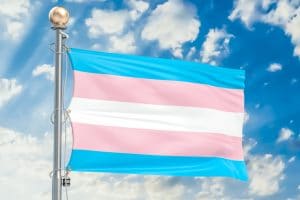The EEOC and DOJ filed opposing briefs before the Supreme Court in a recent case.
On most legal issues, the federal government generally presents a united front. It is unusual for one agency to oppose another in a legal proceeding — yet that is exactly what happened in a recent case, raising the question of where transgender rights stand under federal law.
The case at stake involved Aimee Stephens, an employee who was fired from a Michigan funeral home for transitioning from living publicly as a man to living as a woman. Her employer stated that he is a Christian who believes that people should adhere to their biological sexes. The Equal Employment Opportunity Commission (EEOC), a federal agency, decided to prosecute the case against her employer after an investigation.
In October 2018, the case, R.G. & G.R. Harris Funeral Home v. EEOC was accepted for argument before the United States Supreme Court. Representing Ms. Stephens, the American Civil Liberties Union (ACLU argued that — consistent with the EEOC’s position — Title VII of the federal Civil Rights Act of 1964 prohibits discrimination on the basis of sex, and discriminating against someone based on sex stereotyping violated Title VII. In other words, if an employee faces discrimination because he or she is not acting in conformity with how someone believes a person of his or her sex should act based on stereotypes, that may violate Title VII.
In the past, the United States Department of Justice (DOJ) had expressed support for this argument. However, in 2017, former Attorney General Jeff Session released a memorandum arguing that Title VII does not protect workers from discrimination based on gender identity. In the Harris case, the DOJ filed a brief opposing the EEOC, claiming that the federal ban on sex discrimination does not apply to discrimination based on gender identity. A ruling has not yet been issued in the case.
While this divide between the EEOC and the DOJ complicates the question of protection against discrimination for transgender employees in the workplace, there are still protections available. This is particularly true at the state level. For example, California specifically protects employees from discrimination on the basis of gender identity. If you believe that you have been discriminated against because you are transgender, a skilled employment discrimination lawyer can help you determine whether there are state or federal options for pursuing a claim against your employer.
Although the United States has advanced considerably when it comes to workplace protections, there are some marginalized communities that still face discrimination. As the Harris case demonstrates, the law in this area is not completely settled. That makes it all the more important to have an experienced employment discrimination lawyer who understands the law and how to best prepare a legal claim to help you achieve justice.
At PLBH, we strongly believe that every employee deserves a workplace free from discrimination. We will work with you to help you get the best possible outcome based on the facts of your case. Contact us at (800) 435-7542 or info@plblaw.com to schedule a consultation with an employment discrimination lawyer.

